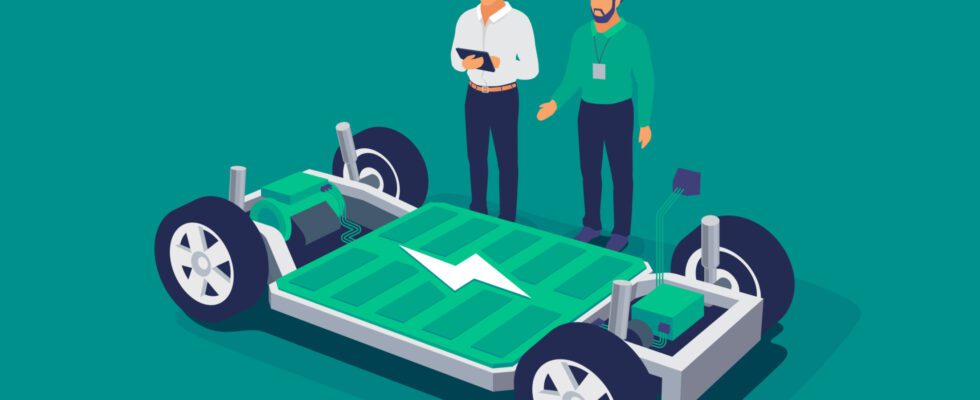The French mining group Eramet wants to become a major player in this sector and help Europe in its efforts towards economic sovereignty.
It is almost impossible to do without lithium-ion batteries today. Computers, telephones, watches, tools… Even our cars are increasingly equipped with them, and in large quantities. Demand is exploding, and its impact on the environment, proven, creates as many challenges as its political and economic weight on countries that do not have the materials necessary for their manufacture.
Grind batteries to make new ones
With several hundred thousand electric vehicles on the road in France alone, and even more in the years to come, the number of dead batteries should increase very rapidly. If their manufacture requires raw materials whose stock is not infinite, the weight of this waste on the environment could also become considerable. Their end of life therefore becomes an essential issue, and it is at this level that the mining company Eramet wishes to intervene.
The latter has demonstrated solid skills in battery recycling for several years and now wishes to move up a gear. With the financial support of the European Union, and in partnership with Suez and two universities, including Paris Tech, Eramet is currently setting up a pilot project near its research center in Trappes, in the Yvelines. Called ReLieVe, this demonstrator should start grinding batteries this summer to produce “blackmass”, a mixture of metals such as nickel, cobalt or graphite. Once separated, they will be used to make new devices.
Economic challenges for Europe
Recycling batteries requires a lot of energy, among other environmental impacts, and has not yet demonstrated its economic viability. But this should change in the years to come, as it could represent an immense economic potential, and as Europe does not have sufficient quantities of the materials necessary for the production of new batteries. Eramet clearly wishes to be part of a dynamic of industrial sovereignty in Europe by wanting to participate in a new circular economy on the continent.
If the results of the pilot project are conclusive, a large-scale processing plant should be built in the vicinity of Dunkirk by 2025-2026, with a processing capacity of 200,000 electric car batteries per year. Even if new technologies full of promise for sustainable development could equip our devices in the decades to come, this initiative is more than welcome. Especially since the concept of an energy crisis is gaining ground in the minds and mores of European citizens.
Sources: Le Figaro, Eramet

2